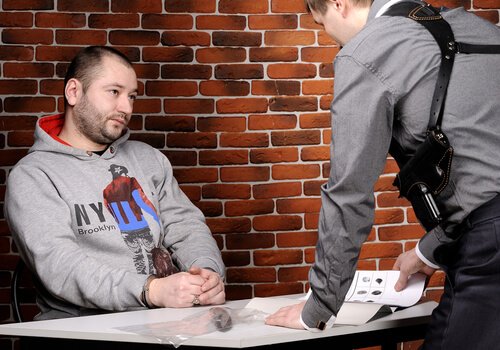What Is A False Confession?
Police are using interrogation techniques to gain confessions from people who did not commit the crime. They are prompted through coercion, a mental disorder or incompetency. Juveniles and those with mental disorder are at a higher risk of a false confession. Also, innocent people will falsely confess thinking they can make the confession and straighten the issue out at a later time. However, later is too late.
Interestingly a group called the Innocence Project; a non-profit legal organization has done a lot of research into this topic. They have found that nearly 25% of criminals who were convicted and later set free, did confess to the crime. High pressure that is made by the police will push people into a false confession.
False confessions are in three categories which include voluntary – those that are given freely without the police provoking the answer, compliant – to get out of a stressful setting, to avoid punishment, or get a reward and lastly, internalized false confession. The last one occurs with people who believe they have perpetrated the crime.
Interrogation Techniques Police Use For False Confessions
The police will use many interrogation techniques on people who are accused of a crime. These involve the Reid Technique, informal questioning, and lying. If at any time you are questioned or charged with a crime or are accused, never make a statement to the police without having a lawyer present. The best way to keep from implicating yourself is not to say a word.
The following list explains the difference between the techniques police use for interrogation:
1. The Reid Technique – This technique which was created in the 40’s look like the interview that is conducted in the movies and on criminal TV shows. The scenario involves the good cop/bad cop team and happens in a dimly lit room. This technique produces favorable results for the police. There are three models which are used to guide the accused individual to think that it is a good idea to confess. The first thing police do is to isolate the defendant from family and friends which lead to them feeling abandoned and alone. Because this worked so well, the interrogation rooms used today have no windows. Next, the use maximization. By beginning the conversation with the fact that the officer and the accused know from the beginning that they are guilty, it gives the police a leg up in continuing the interrogation. He/she does this by posing the notion of the crime which may or may not be supported. This concept places the idea in the suspect’s mind who is later able to repeat back to the officer’s details about the crime. The officer also dismisses any statements of innocence from the suspect. Here is where the “bad cop” scenario is played. And finally, the use of minimization, where the officer now becomes the “good cop” and assures the accused that he appreciates why they did and others will appreciate it as well. The accused will feel so much better after confessing and will be able to leave. And so, he confesses.
2. At any point where someone talks to a police officer, they can also do information questioning. If you are stopped by the police, and you aren’t sure why you can assume that you are suspected of a crime. Be sure to behave appropriately and ask if you are free to leave. If they say yes, then leave; if the answer is no, it is okay to say that you will not answer any questions until you can speak to your attorney first.
3. There is nothing written anywhere that states police officers aren’t allowed to lie. So be aware of the potential for them to lie. The are not, however, allowed to make threats or promises. The limits of how far they can go with threats, promises and other methods used by the police are rarely if ever clear. Remember, the best way to safeguard yourself from this is by not talking.
When DNA testing came to the forefront, many people were pardoned for falsely confessing to crimes they did not commit. Because there have been so many cases, it is now required that interrogations are recorded which has helped to lower these false confessions. The good news is that many areas have started using this.
Never hesitate to tell a police officer that you are not willing to answer his questions without an attorney present. By doing so, you may save your life.












